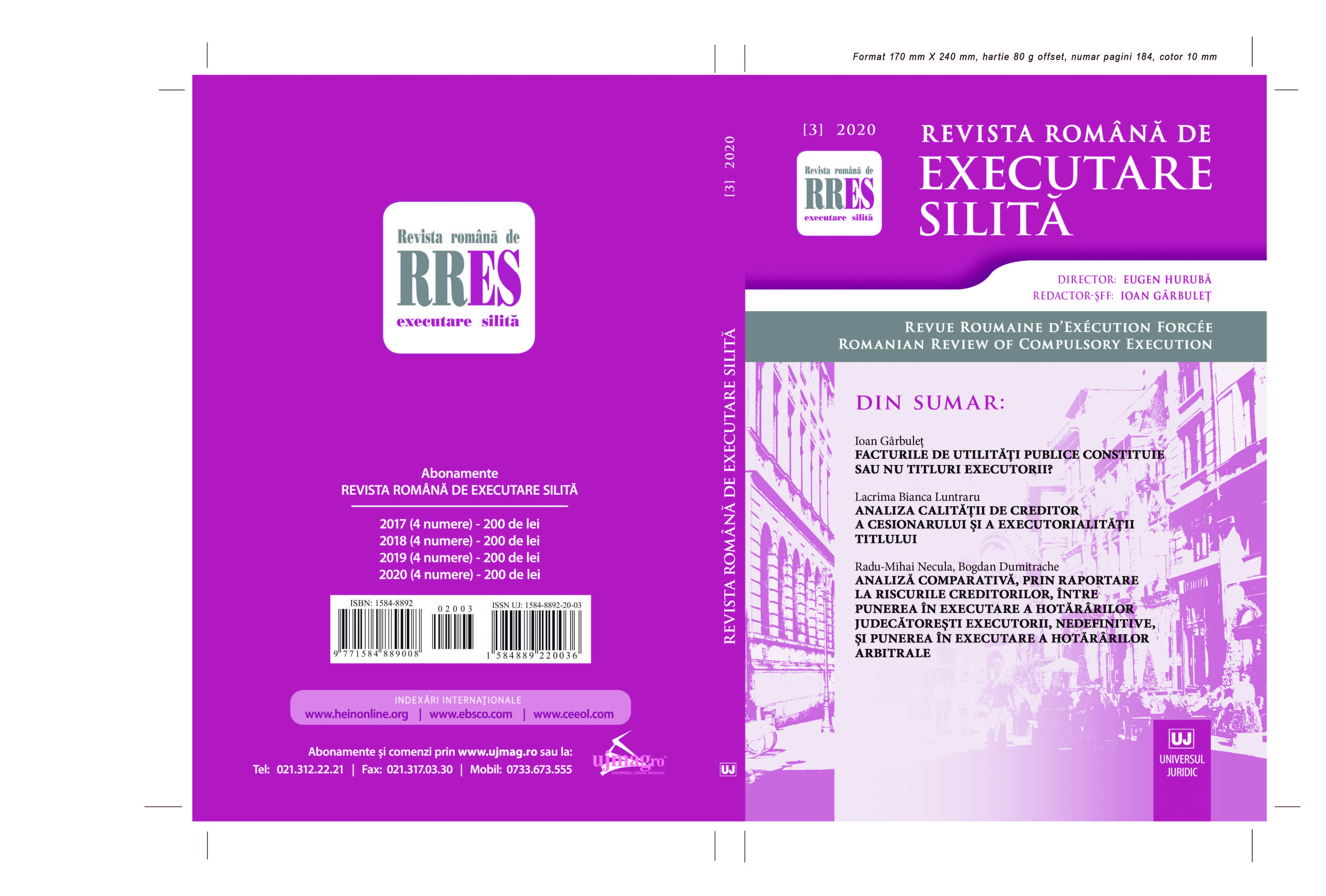Medierea prin prisma legislației Republicii Moldova, Funcționarea medierii în Republica Moldova
Mediation in the light of the laws applicable in the Republic of Moldova, Operation of mediation in the Republic of Moldova
Author(s): Veronica Cupcea, Olesea CernolevSubject(s): Law, Constitution, Jurisprudence, Civil Law
Published by: Universul Juridic
Keywords: mediation; mediator; judicial mediation; amicable settlement;
Summary/Abstract: Mediation in the Republic of Moldova after almost 12 years since the adoption of the Law on mediation no. 134/2007 (entered into force in 2008), modified by Law no. 137 of July 3, 2015, had appeared as an alternative extrajudicial defense procedure with a benevolent and bilateral character, which aimed to effectively resolve disputes between the parties. The purpose of the new law on mediation was and is, moreover, to improve the efficiency of the activity of mediators and to stimulate the appetite of the parties, involved in a conflict, by appealing to the institution of mediation, thus clearing the courts. If the litigation in court is the traditional form of dispute settlement, based on the action being brought before the courts where the judge listens to the parties' arguments regarding the interpretation of the law applicable to the respective case and then decides in favor of one of the parties, the mediation comes to overturn the prejudices that a court decision is more valuable or that justice can only be obtained in the court. In the context of the Law on mediation, the Supreme Court of Justice of the Republic of Moldova came up with a series of legislative proposals to establish mandatory judicial mediation, as an indispensable way of prior and amicable settlement of disputes. As a consequence, the Law no. 31 ”To supplement the Code of Civil Procedure of the Republic of Moldova no. 225/2003 ”, which was aimed at promoting the institution of judicial mediation, having completed the Civil Procedure Code with chapter XIII1“ Judicial mediation ”(art. 1821 1825). Thus, judicial mediation and extrajudicial mediation develop together, constituting the two fundamental components of 21st century justice. Judicial mediation and extrajudicial mediation pursue different goals, which, however, converge towards a common goal: to solve, through synergy, timely conflicts, in a satisfactory and economical manner. Mediation is perfectly suited to disputes that have resisted all other forms of out of court settlement. Through mediation, the parties are brought in to resume their dispute and to try to resolve it according to their interests. The multitude of legal, financial, psychosocial aspects and, in particular, regarding the duration of the conflict resolution through justice, as well as the emergence of the "institution of the mediator" make the mediation, in its capacity as an alternative for the modernization of the judicial system in the Republic of Moldova, to be a particularly complex one. Judicial mediation has a flexible character, is fast and focused on amicable settlement of the dispute, it removes various shortcomings of the adversarial system and represents a powerful alternative to a process that resolves and less reconciles. In judicial mediation, the parties have the prerogative of admitting or rejecting any amicable settlement of the dispute, the judge having only the role of assisting and facilitating the parties' discussions, treating them from a neutral position, while the parties have an active role in resolving the dispute. The institution of mediation was created to improve the judicial system in a constructive way, not to replace the traditional litigation in court. The parties may use the mediation process before or during the litigation in court to prevent a civil action, or to prevent a decision that will not be accepted by at least one of the parties.
Journal: Revista Română de Executare Silită
- Issue Year: 2020
- Issue No: 3
- Page Range: 80-89
- Page Count: 10
- Language: Romanian
- Content File-PDF

